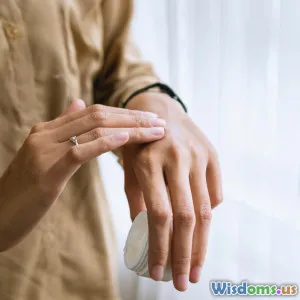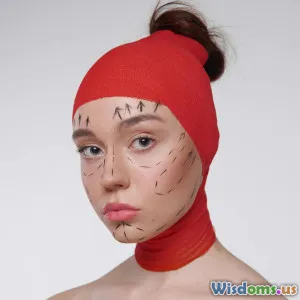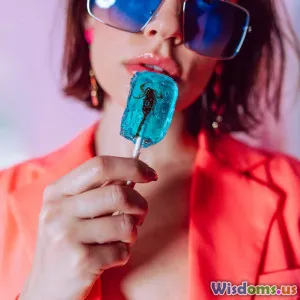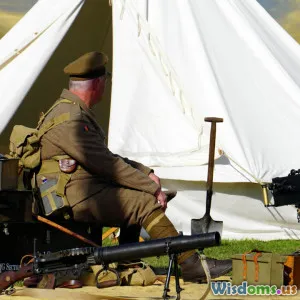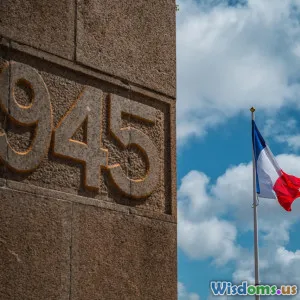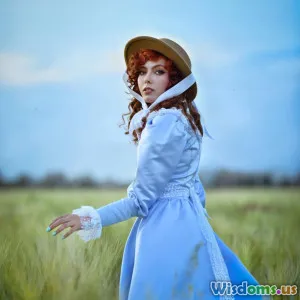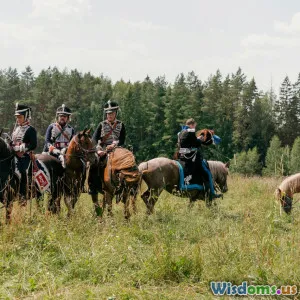History's Most Iconic Beauty Trends
7 min read Explore history's most iconic beauty trends that shaped cultures and redefined style over centuries. (0 Reviews)History's Most Iconic Beauty Trends: A Journey Through Time
Beauty has always been more than just aesthetics; it's a dramatic reflection of culture, power, identity, and social change. Throughout history, certain beauty trends have ascended far beyond mere fashion fads to become iconic symbols of their eras. This article traces some of history’s most enduring beauty trends, revealing how they shaped identities and how their legacy continues to inspire today’s style.
The Power of Ancient Elegance
Cleopatra’s Kohl: The Eye of Majesty
One of history's earliest and most enduring beauty trends can be traced back to ancient Egypt. Cleopatra, arguably one of the most iconic beauty icons, was renowned for her dramatic eye makeup using kohl—a blend of crushed minerals such as galena and malachite.
Not only did kohl enhance beauty by intensifying the eyes, but it also served practical purposes: it protected against the harsh desert sun's glare and had antibacterial properties helping prevent eye infections.
Cultural Impact: Kohl-lined eyes became synonymous with royal status and divine beauty, influencing countless cultures beyond Egypt. Even today, the concept of winged eyeliner pays homage to this ancient tradition.
The Geisha’s White Canvas and Red Lips
In Japan, the Geisha’s beauty routine epitomized grace, refinement, and an artistic mastery of makeup. Applying white-faced makeup made from rice powder created a luminous porcelain canvas, symbolizing elegance and mystery. Contrasted with deep red lips—a sign of maturity and allure—this look was both ritualistic and stunning.
Legacy: This aesthetic influenced Western interest in Eastern beauty practices, inspiring avant-garde makeup artists and fashion designers internationally.
Renaissance and Baroque: The Flourish of Pale Skin and Rouge
In Renaissance Europe, pale skin became a markers of nobility and leisure, as it suggested one did not work outdoors. Women painstakingly applied lead-based white powders to create porcelain-like complexions, unaware of the toxic side effects.
Rouge, typically made from cochineal or crushed beetles, was applied to the cheeks and lips to add a touch of vitality, balancing the ghostly paleness.
Quote: Isabella d’Este, a leading Renaissance patron, is famed for her beauty and carefully maintained appearance that was envied across courts.
The Victorian Era: Modesty Meets Elaborate Hairstyles
Queen Victoria's reign emphasized modesty, yet beauty trends began embracing complexity in hairstyles. Bustles, intricate braids, and cascading curls became fashionable for women to express wealth and sophistication. The use of botanical-based cosmetics also grew, avoiding harsh chemicals.
Victorian beauty standards also frowned upon excessive makeup, associating visible makeup with scandalous behavior; instead, subtle beauty and natural appearance were prized.
Fact: Hair was often grown long and commodified during this era, with hair salons establishing as centers of beauty culture.
1920’s Flapper Revolution: Bold Brows and the Bob Cut
The roaring twenties transformed beauty ideals radically, breaking free from Victorian restraint. The flapper look emerged as a symbol of female liberation and defiance.
Key Trends:
- Cloche Hats paired with the bob cut: The short haircut defied traditional femininity.
- Dramatic eyebrows: Often darkened and shapely, contravening the once-natural look.
- Rouged cheeks and smoky eyes: To match the era’s spirited nightlife.
Statistical Insight: During the 1920s, mascara sales surged as women sought to enhance their expressive eyes, aligning with changing social freedoms.
The 1950s: Hollywood Glamour and the Power of Red Lips
The post-war golden age idolized the glamour of Hollywood stars like Marilyn Monroe and Elizabeth Taylor. The signature beauty look embraced voluptuous curls, cat-eye eyeliner, and bold red lipstick signifying confidence and sensuality.
Cosmetic companies like Revlon capitalized on this trend, introducing innovative formulations that made potent red lipsticks widely accessible.
Societal Impact: This era’s beauty ideal helped cement lipstick as a tool of empowerment for women navigating new roles in society.
The 1960s: Mod and Twiggy’s Novel Aesthetic
Twiggy, the quintessential icon of the ‘60s, popularized a fresh, youthful appearance featuring:
- Thin, elongated rectangular eyebrows
- Dramatic, multi-layered lashes
- Pale skin with minimal foundation
The mod style reflected a generation rejecting previous norms, embracing androgyny and playful experimentation.
Real World Impact: Cosmetics companies developed new mascaras and false lashes inspired by Twiggy's exaggerated eye makeup, revolutionizing how eyelashes were emphasized.
Conclusion: Beauty Trends as Mirrors of Society
From Cleopatra’s enchanted eyes to Twiggy's mod revolution, iconic beauty trends serve as cultural barometers reflecting social values, technology, and identity. They shape—and are shaped by—the eras they belong to, offering profound insight into the people who lived through those times.
Understanding these trends enriches our appreciation for contemporary style, grounding modern beauty in the rich tapestry of history’s artistry and innovation. What might today’s iconic beauty mark be in the next hundred years?
References
- "Makeup: The History of Civilization and Life in Six Eras," Harper Collins, 2019
- "Kohl and the Shadows of Egyptian Eye Cosmetics," Egyptian Journal of Archaeology, 2017
- "Women and Cosmetics in Victorian England," Social History of Medicine, 2015
- Cosmetics Industry Data Report, 1920-1960, Beauty Insights Inc., 2022
Embark on this journey through epochs and see how embracing history’s beauty ancestral wisdom can inspire your personal style today.
Rate the Post
User Reviews
Popular Posts










